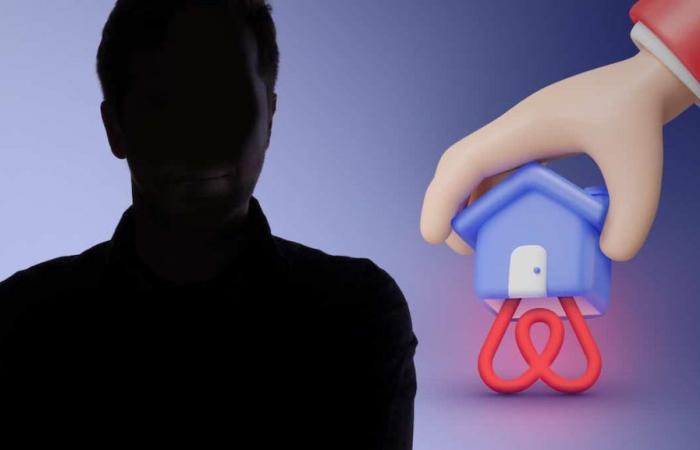One owner explains that he was easily able to circumvent the rules to rent several primary residences on Airbnb, because municipalities do not require any proof.
Edgar* rents several accommodations in the same building located in Montreal on Airbnb throughout the year. He can do this thanks to three registration numbers from the Corporation de l’industrie tourisme du Québec (CITQ) of “main residences”. One is in his name, one in the name of his partner and one in the name of a “tenant”.
The couple lives in Outaouais and the “tenant” lives outside the city. He claims to use one of the apartments as a “pied-à-terre” when he comes to Montreal.
Edgar agreed to tell us how easy it was to circumvent the law, in exchange for anonymity.
“I went [aux bureaux de la Ville] and they made the certificates by hand on the spot for me and my partner,” he says.
He reports that he was not asked for any proof of residence.
Edgar admits he would never rent out his real primary residence on Airbnb with his belongings inside. “My partner wouldn’t want to,” he says.
- Listen to the explanations of journalist Dominique Cambron-Goulet via OLD :
Express renewal
According to Edgar, the Ministry of Tourism is not more meticulous. Only photos of the ad and proof of insurance are required when you own the building.
He assures that he did not have to provide any other proof of address than the City certificate to obtain his CITQ number.
Even worse, when it came time to renew, he was able to pay for two licenses with the same credit card.
“For my partner, it was a problem, so I took out my own credit card. I expected to receive something in the mail, but the next day by email I received the renewal confirmation,” he says.
He has never been bothered by the authorities or fined, even though he has been renting the accommodation for over a year now.
TOMA ICZKOVITS
Montreal tightens the screw
The person responsible for housing on the executive committee of the City of Montreal, Benoît Dorais, recognizes that the situation of false principal residences displayed on Airbnb is problematic.
“You can’t ask for the paper that proves that you have a main residence. It doesn’t exist,” he explains.
Seeing that the verification was deficient, since April the City of Quebec has required a notice of assessment from Revenu Québec or the Canada Revenue Agency as proof of address.
«[Avant]we relied on the CITQ. There were no requirements,” agrees Mélissa Coulombe-Leduc, responsible for urban planning at the executive committee of the City of Quebec.
Montreal has just followed suit in certain boroughs.
“In recent weeks, it has been requested as a barrier to entry. But a notice of assessment is no longer proof of main residence in the same way that a Hydro-Québec bill does not prove that it is your main residence,” admits Benoit Dorais.
To add to the control, applicants will have to appear in person at the district offices. They will no longer be able to proceed by proxy, adds the elected official.
Other cities, such as Laval and Longueuil, do not require a document if the owner’s correspondence address for property taxes is the same as that of the building.
*Fictitious name






